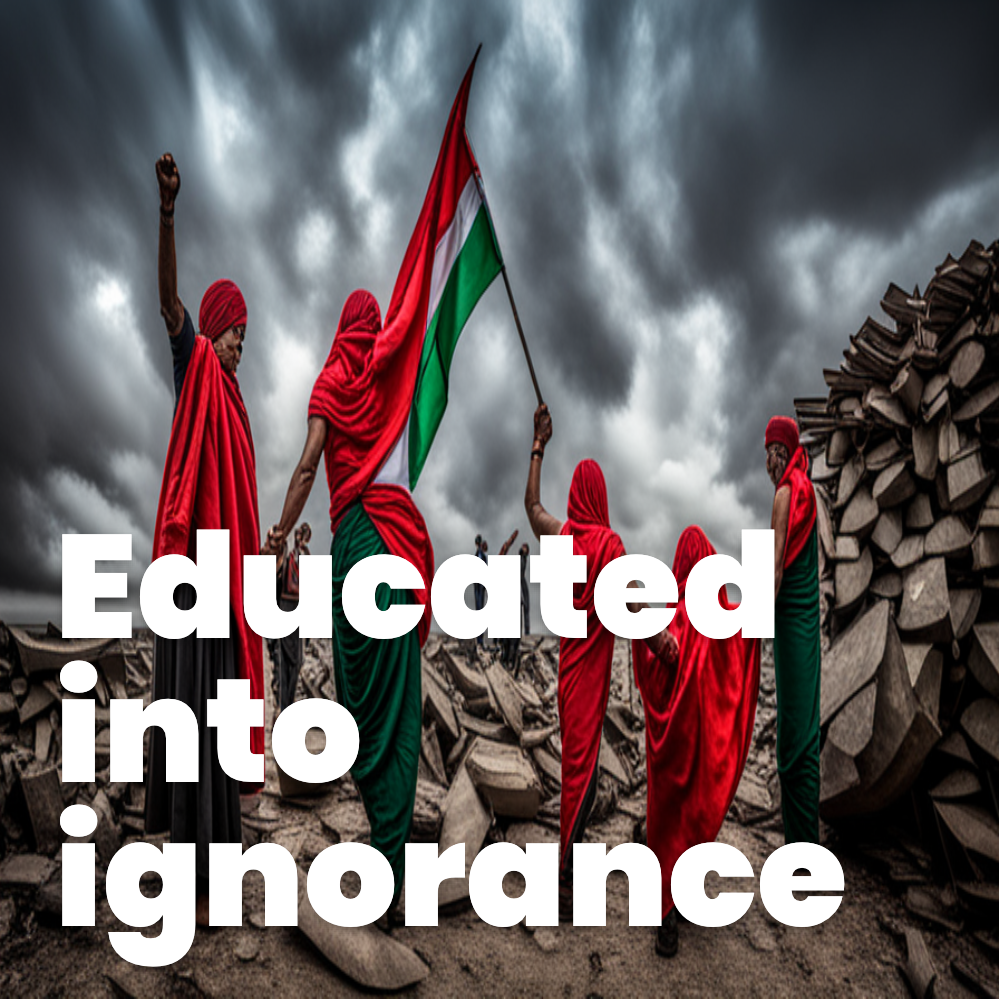
I’ve been thinking a lot about identity more so after my daughter entered the public school system in the US. Suddenly, everything felt like a negotiation. What do I pass down? What do I let go of? What’s cultural inheritance, and what’s just habit? I want to give her the best of both worlds, but even that phrase feels heavy. What are these “worlds”? Who divided them?
Diwali means nostalgia to me. To her, it’s just another costume day. And that gap, it stings, but it also makes me wonder if it’s fair to expect her to see the culture I grew up with exactly the way I see it, when she doesn’t have the lived experience. It also makes me wonder where does identity really come from? Can it be something that lets you stand comfortably in your own skin, without needing approval?
We’re born into flags, languages, and skin tones. Then we’re told to take pride in them. That our nationality is sacred. That our ethnicity defines us. That our tribe is home.
But can we ever fully feel at home when we’re given limited labels?
I’m Indian by passport, South Asian by label but in practice, I’m always a little too much or a little too little of something. I never lit up for religious festivals, but I get emotional over festival food, Indian literature and resilience. I love to rock my jhumkas and talk about Western philosophy. I love Mexican food and enjoy Middle Eastern storytelling. I value personal space, but I also crave shared meals. And who decides whether that’s “truly Indian” or not?
The more I tried to fit into the labels, the more they felt like rulebooks. Skin color, food, accent, behavior everything became a checkpoint. Step outside the script, and someone’s always ready to remind you, That’s not how we do things.
And yet, I’ve never wanted to abandon where I came from. I don’t feel shame in my skin. I don’t scoff at festivals or hide my mother tongue. I just don’t think it has to be the whole story.
There’s a quiet power in not making your identity a flag to wave. When you don’t treat culture like a fixed box, you move through the world more fluidly. You can read Persian poetry, eat Thai food, laugh at British sarcasm, and nod at a Nigerian proverb.
When you don’t cling to one identity, you don’t feel the need to defend it. If someone criticizes your country or culture, you might instinctively want to push back but it also opens space to reflect and improve. You don’t have to rush to inflate with national pride when it’s praised either. You start noticing how people everywhere share the same struggles, value the same things most are just trying to be seen and make a living. And that’s when the borders begin to blur.
Of course, there’s a cost. You don’t always get the group chats, the inside jokes, the “us.” You might be called too Western. Self-hating. Too detached.
But belonging isn’t always a comfort. Many communities are also built on comparison, performance, and control. People fighting for hierarchy and approval under the banner of “tradition.” People who will celebrate you one day and exile you the next. Belonging can come with surveillance.
So I’d rather be outside. I’d rather be free than be approved.
Yes, I’m lonely sometimes. But so is everyone else. Even in tight groups, people bury their loneliness under noise, gossip, and performance. At least mine is honest.
So if loneliness is inevitable, I choose to meet it on my own terms. Quietly. Truthfully.











Write a comment ...